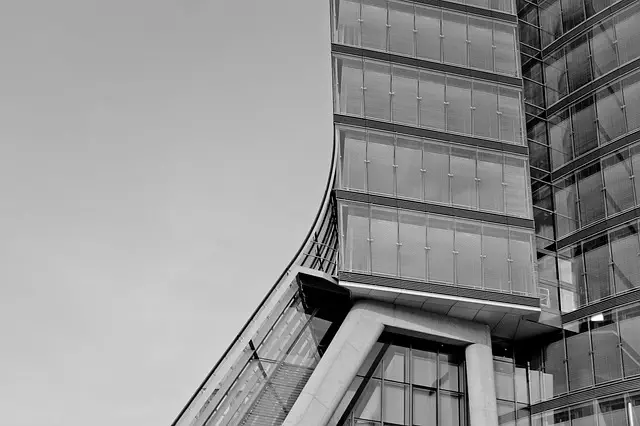Navigating Commercial Insurance: Essential Protection for Business Success
Commercial insurance is a strategic investment for businesses, offering a safety net against various…….

Commercial insurance is a strategic investment for businesses, offering a safety net against various risks and liabilities, including property damage, legal disputes, employee injuries, and business interruptions. Key components include general liability, property, and workers' compensation coverage. It aids swift recovery, maintains operations, and protects financial health during challenging periods. Understanding different policy types allows business owners to select optimal coverage tailored to their needs. Choosing the right insurance involves assessing unique risks, comparing policies, and considering customer reviews. Types of protection include property, liability, business interruption, and professional liability insurance. The claims process requires prompt reporting, document submission, collaboration with insurers, and timely communication. Policy pricing varies based on business type, size, location, industry hazards, and historical claims. Proactive risk management maximizes benefits by regularly reviewing and updating policies to align with evolving business needs.
Commercial insurance is a vital shield for businesses, offering protection against unforeseen risks. This comprehensive guide navigates the essentials of commercial coverage, from understanding core policies to choosing the right fit for your venture. We explore various types, common risks, and the claims process, providing insights on pricing and top tips to maximize benefits. Discover how commercial insurance adapts to unique business needs, ensuring resilience in an ever-changing landscape.
Understanding Commercial Insurance: What It Covers and Why It's Essential

Commercial insurance is a safety net for businesses, offering financial protection against potential risks and liabilities. It’s more than just a legal requirement; it’s a strategic investment in the future of your company. This type of insurance covers a wide range of scenarios, from property damage and legal disputes to employee injuries and business interruption.
For instance, general liability insurance protects against claims of bodily injury or property damage on your premises, while property insurance safeguards your business assets from perils like fire, theft, or vandalism. Workers’ compensation insurance is also crucial, as it covers medical expenses and lost wages for employees injured on the job. Commercial insurance isn’t just about mitigating risks; it ensures businesses can recover quickly, maintain operations, and protect their financial health in challenging times.
Different Types of Commercial Insurance Policies Explained

Commercial insurance is a crucial aspect of running a business, offering protection against potential risks and financial losses. The market provides various types of policies tailored to meet different business needs. These can be broadly categorised into property insurance, liability insurance, and professional liability insurance.
Property insurance covers business assets such as buildings, equipment, and inventory against damages or theft. Liability insurance protects businesses from claims arising from injuries or damage caused to third parties, while professional liability insurance, also known as errors and omissions coverage, shields businesses from financial loss due to professional negligence or mistakes in service provision. Understanding these options enables business owners to select the most suitable coverage for their specific operations.
How to Choose the Right Commercial Insurance for Your Business

Selecting the appropriate commercial insurance is a crucial step in safeguarding your business against potential risks and ensuring its long-term success. The first step is to assess your business’s unique needs. Consider the type of industry you’re in, the size of your operations, and the specific risks associated with your day-to-day activities. For instance, a construction company will require different coverage than a tech startup.
Once you have a clear understanding of these factors, compare various commercial insurance policies offered by different providers. Look into aspects like coverage limits, deductibles, and exclusions to ensure the policy aligns with your needs. It’s also beneficial to read through customer reviews and seek recommendations from industry peers or business associations to make an informed decision regarding the best commercial insurance for your venture.
Common Risks and Perils That Commercial Insurance Protects Against

Commercial insurance is a safety net for businesses, safeguarding them against potential risks and perils that could disrupt operations and impact profitability. Common threats include property damage or loss due to fires, storms, or natural disasters, which can be covered under property insurance policies. Similarly, liability coverage protects businesses from financial loss resulting from accidents, injuries, or property damage on their premises, protecting them from legal liabilities.
Business interruption is another significant risk, arising from events like power outages, cyberattacks, or labor disputes that halt operations. Commercial insurance policies can compensate for lost revenue and additional expenses incurred during such periods, ensuring businesses can recover and continue functioning. Additionally, professional liability insurance shields businesses from claims related to negligence, errors, or omissions in their services, safeguarding their reputation and financial health.
The Claims Process: What to Expect and How to Navigate It

When a claim is made under your commercial insurance policy, understanding the claims process is crucial for navigating this often complex procedure efficiently. The first step typically involves reporting the incident or loss to your insurance provider as soon as possible. This can be done through their designated customer service hotline or online platform, providing detailed information about the circumstances. After receiving your claim, the insurer will assign a case manager who will guide you through the process. They will request relevant documents, such as police reports, medical records (if applicable), and any evidence related to the loss or damage.
Collaboration between the policyholder and the insurance company is key during this phase. Be prepared to answer questions, provide additional information, and potentially attend interviews regarding the claim. The insurer will then assess the validity and extent of your claim based on the submitted documentation. This evaluation determines the appropriate response, which could result in an approval for compensation or a rejection if the claim doesn’t meet policy criteria. Timely communication with your insurance representative is essential to ensuring a smooth claims process and swift resolution.
Pricing and Cost Factors in Commercial Insurance Policies

Commercial insurance policies are priced based on a variety of factors that reflect the unique risks associated with different businesses. These include the type and size of the business, its location, industry-specific hazards, and historical claims data. Each of these variables plays a crucial role in determining the cost of coverage. For instance, a manufacturing facility might face higher premiums due to the risk of equipment failure or workplace accidents compared to a service-oriented business. Similarly, businesses in high-crime areas or those with significant property value may require more extensive coverage, driving up costs.
Understanding these pricing dynamics is essential for business owners when comparing different commercial insurance policies. Insurers use sophisticated models to assess risks and set rates, ensuring that policies are priced accurately. By reviewing these factors, businesses can make informed decisions about their insurance needs and find the most suitable policy within their budget. This proactive approach allows them to protect their assets and maintain financial stability while navigating the complexities of commercial insurance.
Top Tips for Maximizing the Benefits of Your Commercial Insurance Coverage

To make the most out of your commercial insurance, prioritize proactive risk management. Regularly review and update your policy to align with evolving business needs. Conduct comprehensive risk assessments to identify potential hazards and ensure adequate coverage for all aspects of your operation. This includes assessing physical premises, inventory, equipment, and even cyber risks in today’s digital landscape. Engaging in open communication with your insurance provider is key; discuss your specific concerns and ask about optional coverages that can offer enhanced protection.
Maximizing benefits also means understanding what’s excluded from your policy. Carefully read the fine print to comprehend exclusions related to negligence, war, or natural disasters. Consider additional endorsements or policies to bridge these gaps if necessary. Regularly reviewing and adjusting your coverage will ensure you’re not paying for protections you don’t need while remaining adequately insured when it matters most.







